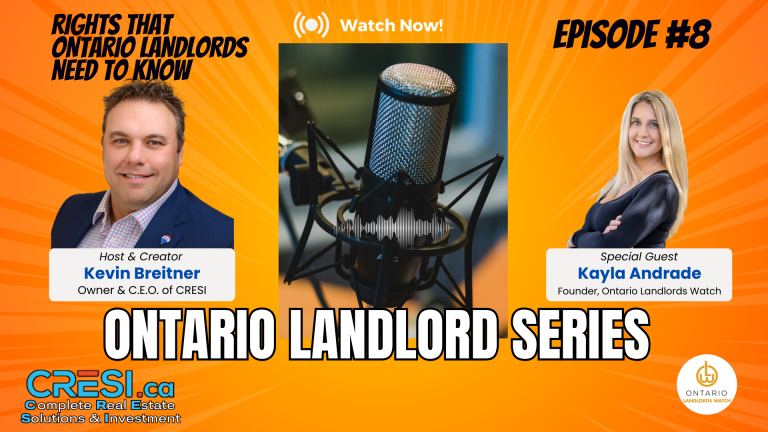
Guest Author Kayla Andrade,
Founder, Ontario Landlords Watch
Connect with Kayla:
It's time to address a critical issue --
the handling of NON-PAYMENT OF RENT applications at the LANDLORD AND TENANT BOARD LTB). 

Currently, the board is backlogged with 53,000 cases, and the majority of these are non-payment of rent applications (N4). According to the Landlord and Tenant Board’s 2022-2023 annual report, there were a total of 64,450 landlord applications, with 37,690 being N4 non-payment of rent applications. This is completely unacceptable! The sheer volume of these cases demonstrates a broken system that is not serving the needs of landlords or tenants, further contributing to the housing crisis in Ontario.

It’s worth mentioning that in the 2022-2023 period, there were only a total of 8,455 tenant applications.
Its clear that the system is failing both landlords and tenants, and immediate reform is necessary.

Why are we requiring full hearings for straightforward cases of unpaid rent? It’s mind-boggling that our government would rather spend $110,000 per adjudicator to hold hearings for tenants who cannot or will not pay rent, instead of investing those funds into rent relief programs that properly vet tenants and ensure landlords receive payments in a timely manner.

The truth is, the government has shifted too much responsibility onto private housing providers, essentially turning landlords into social service agencies. The Landlord and Tenant Board no longer provides equal access to justice for landlords, which is why so many landlords are leaving Ontario. The result? We are losing more housing supply than we are gaining.

So, how can we fix the way non-payment of rent applications are handled? Here’s what I recommend:
Suggested Process for N4 Applications – Non-Payment of Rent
1. Administrative Review Process:
Non-payment of rent applications should not automatically go to a full hearing. Instead, they should first go through an administrative review process to determine whether a full hearing is necessary.
2. Filing and Notification:
Once an N4 Notice is served, the landlord would file it with the LTB along with a sworn affidavit and relevant evidence. The LTB would immediately contact the tenant, requesting a response with evidence of payment, any payment plans, and their ability to repay the outstanding amount.
3. Administrative Resolution:
If deemed suitable for administrative processing, the LTB could make a ruling based on written submissions:
Set a payment plan for the tenant, with consequences if the plan is not followed.
Issue an eviction order if necessary.
4. Full Hearing Only if Necessary:
If there are Section 83 considerations or if the tenant files a T5: Tenant Application, the matter could then be scheduled for a full hearing.
This process would allow the LTB to resolve straightforward cases more efficiently, alleviating the massive backlog and allowing more significant matters to be addressed promptly.
This change is crucial—not just for landlords but also for tenants who are stuck in a slow and inefficient system. It’s time for the government to stop using private landlords as a substitute for social housing solutions and address the real issues in a meaningful way.
As we continue to navigate the challenges within the Landlord and Tenant Board, it’s important to remember that we can take proactive steps to protect our rental businesses. By registering your tenants’ rent payments with  FrontLobby.com, you can report both positive and negative payment histories, helping create a safer and more transparent rental industry. You can take advantage of a premium membership with discount code “OLWgift” for a free credit check.
FrontLobby.com, you can report both positive and negative payment histories, helping create a safer and more transparent rental industry. You can take advantage of a premium membership with discount code “OLWgift” for a free credit check.
This article originally appeared in the Ontario Landlords Watch Facebook group and is reprinted with permission.
Want to hear more from Kayla? Check out her episode on the CRESI Ontario Landlord Series podcast!




